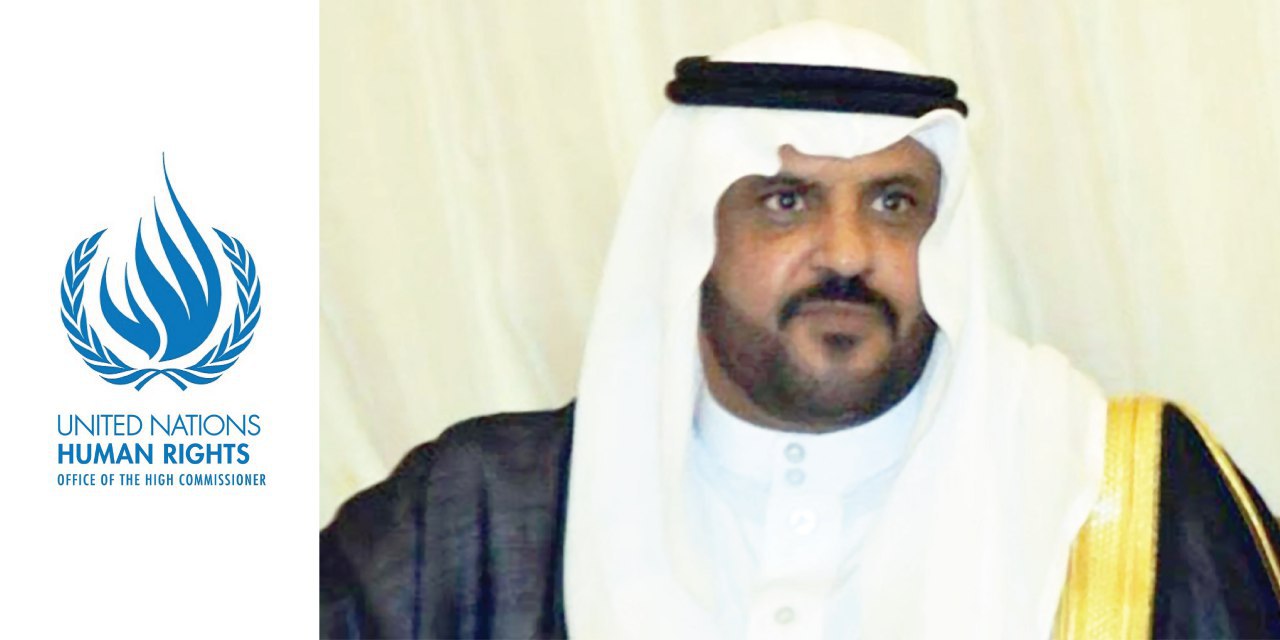
Three months after the UN Working Group on Arbitrary Detention requested the immediate release of human rights advocate Mohammed al-Otaibi, the judiciary of the Kingdom of Saudi Arabia has opened a new case against him.
In April 2019, the Working Group published its legal opinion on the case of human rights advocate Mohammed al-Otaibi (born August 1968), currently detained in the Mabahith prison in Dammam. The group expressed its concern that this opinion is just one of many it has reached noting the Saudi government’s violation of its international human rights obligations and confirming the existence of a wide-scale system of arbitrary detention. Nonetheless, two months later in June 2019, instead of responding to the group’s request, Saudi Arabia opened a new case against al-Otaibi, accusing him of evading trial, traveling to Qatar, contacting foreign entities, and interfering in public affairs.
The Working Group had already stated that in his first trial al-Otaibi was interrogated for his participation in founding a human rights association (Union for Human Rights) in May 2013, and, in October 2016, was summoned by the Specialized Criminal Court, where he was charged with setting up an organization illegally, publishing information harmful to the reputation of the Kingdom, and other charges related to his exercise of peaceful activities.
The Working Group also noted that al-Otaibi was in the process of leaving Qatar for Norway in March 2017, after he was granted emergency travel papers and a visa to apply for political asylum immediately upon his arrival. However, Qatar arrested him at the Doha airport and forcibly extradited him to Saudi Arabia, where he was immediately detained, kept isolated from the outside world for two weeks, and prevented from contacting his family. In addition, al-Otaibi was placed in solitary confinement for three months and did not appear before the court until 50 days after his arrest. In January 2018, he was sentenced to 14 years in prison.
In May 2018, the Working Group addressed the government of Saudi Arabia seeking an explanation of his case. Despite the government’s response, the group considered the proceedings outlined in the response insufficient, explaining that any legal proceedings relied upon by the government must conform to international standards, including the Universal Declaration of Human Rights.
Another part of the group’s published opinion emphasized that the expulsion of a refugee is prohibited by law when “his life or his freedom is threatened because of his race, religion, nationality, or membership of a particular social group or political opinion.” The group also stressed that al-Otaibi’s extradition by Qatar violates the UN Convention Against Torture and Other Cruel, Inhuman or Degrading Treatment or Punishment, especially given Saudi Arabia’s consistent pattern of human rights violations.
The Working Group concluded that depriving human rights advocate Mohammed al-Otaibi of his freedom violates the Universal Declaration of Human Rights and that his detention is arbitrary and unlawful. It also requested that the Saudi government take the needed steps to process al-Otaibi without delay, saying that the appropriate remedy in this case is to immediately free and legally compensate al-Otaibi.
The Working Group urged Saudi Arabia to ensure a full and independent investigation of the circumstances surrounding al-Otaibi’s arbitrary detention and take appropriate measures against those responsible for violating his rights. The group also asked the government to transmit any new developments in the case.
The ESOHR believes that the case of activist al-Otaibi is an example of Saudi Arabia’s official approach to dealing with UN human rights mechanisms, and it points to the falsity of official Saudi claims, especially the claim in its letter that it is cooperating in good faith with the Working Group.
The ESOHR thinks that the timing of re-opening the case – three months after the publication of the Working Group’s opinion – raises the alert regarding Saudi Arabia’s method of ignoring UN requests and possible retaliation against activists when the UN speaks publicly about the government’s violations. The organization highlights the importance of creating mechanisms for holding Saudi Arabia accountable for these abuses, especially given the country’s membership on the Human Rights Council for the fourth time.
